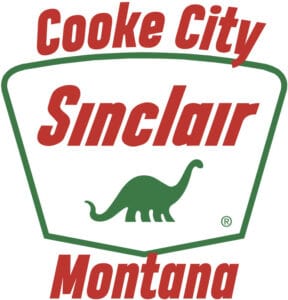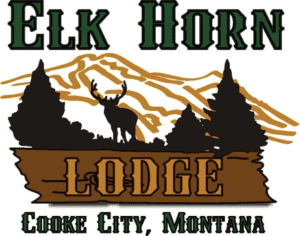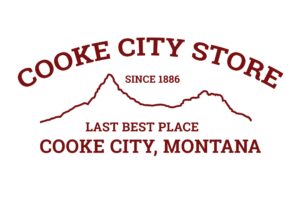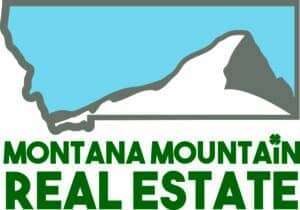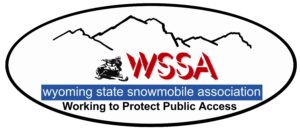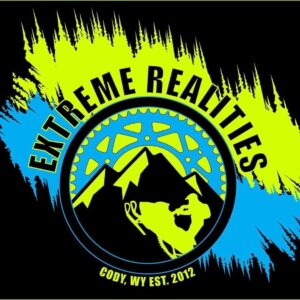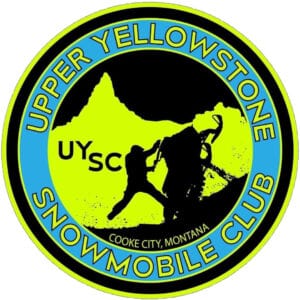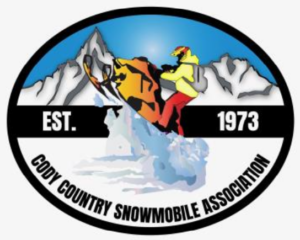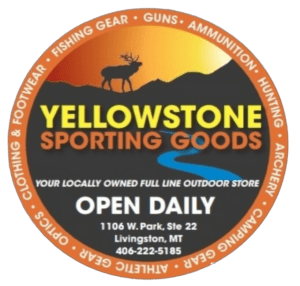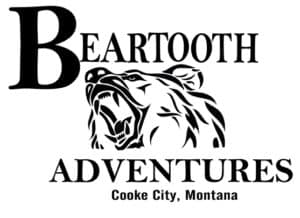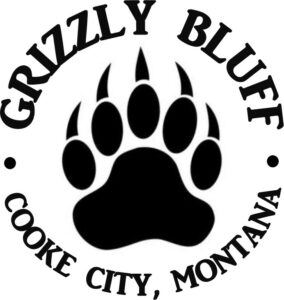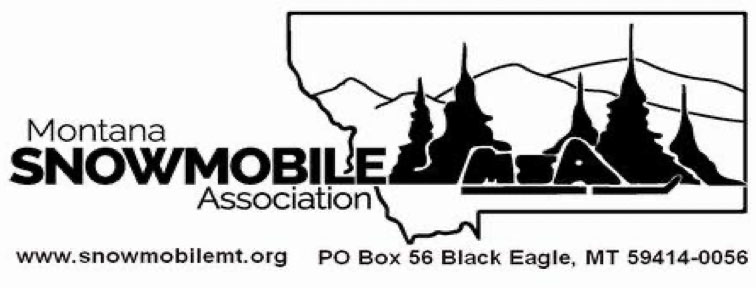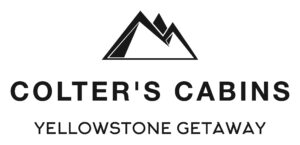By Nora Shelly Chronicle Staff Writer
As published in the BDC: https://www.bozemandailychronicle.com/news/end-of-the-road-plowing-debate-resurfaces-in-cooke-city/article_7d8484ec-aee9-11ed-889f-17c485075f64.html
COOKE CITY — This town shines in the winter.
Blindingly white snow piles up toward rooflines, contrasting with a bright blue sky. Ski and snowmobile tracks lead up to the mountains rising above town. The buzz of snowmobile motors punctures the air.
Even at peak summer tourism season, the town of 77 feels small. But in the winter, the gateway town turns into a dead end.
An eight-mile stretch of Highway 212, known to locals as the “plug,” isn’t plowed in the winter. It blocks off car travel from the east, making Yellowstone National Park the only way in or out by car.
It’s been that way for decades, but some residents are pushing for it to change.
Several business owners said plowing the plug — which would connect Cooke City to the Chief Joseph Highway through the winter and allow cars to drive between here and Cody, Wyoming — would open winter tourism to more than just snowmobilers and backcountry skiers, providing a lifeline for struggling businesses.
But the issue is not without its opponents, who have started a group called “Protect our Plug” to advocate leaving the road as is. People involved in that group say that their businesses are doing just fine and that plowing the plug would negatively alter the character of Cooke City in the winter.
The debate over whether to “plow the plug” comes at a tough time for the town.
In the days following the devastating floods that ripped through Yellowstone National Park in June, things looked bleak for Cooke City.
Floodwaters washed out parts of the northeast entrance road, the town’s connection to the park. Several parts of the road that connected Gardiner to Mammoth Hot Springs also washed out, cutting off Cooke City even further.
The only way out for residents at the time was the Chief Joseph Highway to Cody. The flood waters quickly receded and roadwork soon began, but tourists never flowed back in large numbers.
Cooke City, Silver Gate residents wonder what’s next
Lodging tax data for Park County — not broken down by town — show a 26% decrease in collections in 2022 despite a 39% increase in the first quarter of the year.
With early predictions that the park wouldn’t be able to rebuild the road between Mammoth and Gardiner for a year or more, residents started to panic that they would be completely isolated come winter.
The park service quickly began work on repairing washouts in the Lamar Valley and started laying down a new road connecting Mammoth to Gardiner. Both the north and northeast entrance roads were opened by November.
Cooke City regained access before winter set in, but it reignited and intensified the debate around plowing the plug, both because of the practical fear of being completely cut off in the winter and the economic hit businesses took.
“It’s been a hot topic for decades and it’s currently risen to the top,” Park County Commissioner Bill Berg said. “I think the economic impacts of the floods are hitting hardest there, and folks are looking for a boost.”
After residents involved in the “Park Access Recommendation Committee” began generating buzz about the issue over the summer, another group called “Protect our Plug” started.
Several people said the debate over the issue has been heated at times.
Chad Meador, the general manager of the Alpine Motel, supports plowing the road. Meador said he thinks some people have been afraid to share their opinions on the issue for fear of backlash.
“You gotta live here,” Meador said. “There’s 75 of us and we gotta talk to each other and see each other everyday.”
The case for plowing
Some of those who want the road plowed focus on the convenience it would bring. The closest city is Cody, just 76 miles away. But for the winter months, the plug turns the trip into a much longer ordeal — first people have to drive 56 miles through the park to Gardiner, then an hour to Livingston before even reaching Interstate 90.
Tim Weamer, who lives in Red Lodge, knows first-hand how the plug can complicate otherwise simple travel plans. During the summer months, Weamer is about a two-hour drive to his son’s family in Cooke City. But once the snow starts falling, Weamer has to drive up and around through Livingston to see his son.
Weamer works in tourism in Red Lodge, and said the region would benefit from winter access through Cooke City. The town sits at one end of Yellowstone’s famed Lamar Valley, which is the only road open to vehicles in the winter. It’s also the winter home for bison herds and many of the park’s other animals, making it a wildlife watcher’s dream.
“The idea that you can have winter tourism and a route created for winter tourism through the Lamar Valley, that’s huge,” Weamer said.
Weamer and others argued that the plug limits opportunities for Cooke City. Several business owners said their business has declined in recent years.
Meador estimated business is down about 20% compared to a year with similar weather conditions. Just one bad weather day can have a big impact: On Valentine’s Day a tour group with 22 rooms booked in the Alpine was turned back in Gardiner due to road conditions, Meador said, costing the motel about $3,200 in one go.
“If that road were plowed, that wouldn’t have been a problem,” Meador said.
Bob Smith, who runs the Super 8 and the Bearclaw Bakery, said his books show business at the motel is down 5% to 7% in the winter year-over-year for the last decade.
February is looking to be an average month for Terri Briggs, who owns the Big Moose Resort east of town. But she had very little business in December and January, and said the winter has done nothing to help with the impact of the summer flooding.
Briggs has owned the lodge for seven years. It sits two miles east of Cooke City on the plug. On a recent day in mid-February, the snow was piled as high as the roof of her building and the only people who passed by were snowmobilers heading to town.
“If you’re not a snowmobiler you can’t come to my place for seven months out of the year, so it really limits me,” Briggs said.
Briggs is also the area’s chamber of commerce president, and said she has been talking to more and more businesses in town who support plowing.
Plowing the plug to allow vehicle traffic from the east would diversify Cooke City’s winter tourism beyond snowmobilers and backcountry skiers, Briggs and others said.
Austin Hart, co-owner of Beartooth Mountain Guides, works out of Cooke City frequently despite being based in Red Lodge. Hart said he falls more on the fence on the plowing issue and noted that snowmobiling over the plug to get to town usually isn’t a big deal.
But Hart acknowledged that his business would grow if the road is plowed.
“It’s a bit limiting up there, especially if you’re from the Red Lodge area without a snowmobile,” Hart said. “I do like it wild, but I don’t think opening 8 miles of road would really change the place that much.”
The case against plowing
As strongly as some feel the road should be plowed, others feel it should be left as is.
Some residents argue that their businesses are doing just fine and plowing the plug would negatively change the feel of the town in winter. They also argue that the plug has predated most businesses in Cooke City, who knew about the limited winter access when they started.
Not everyone has had a poor winter season. Lisa Ohlinger, who owns the Elk Horn Lodge in Cooke City, said her business was up 12% in January when compared to 2019. February is looking good as well. Kay Whittle, who owns the Antlers Lodge, also said her business is on track for a good winter.
Both Whittle and Ohlinger said their customers come to Cooke City because of its position as a “sled-to-bed” destination, meaning snowmobilers can ride in and out of town to trails without having to load up a trailer.
It’s a unique place to snowmobile, said Rowdy Yates, the president of the Upper Yellowstone Snowmobile Club. Yates said he and other snowmobilers are worried plowing would irreversibly change that.
“My biggest fear is losing our access to the backcountry,” Yates said.
Some also said plowing and the increase in visitors would disrupt the camaraderie and the special feel of the town in the winter.
Ben Zavora and his wife moved to Cooke City because of the winter isolation. Zavora owns the Sinclair in Cooke City and Beartooth Powder Guides and said his businesses are also doing fine. They decided to keep the Sinclair open in the winter for the second year in a row, and the guiding business is busier every year as backcountry skiing out of Cooke City has exploded in popularity.
Zavora agreed that plowing the plug could help some businesses, but said he fears it would impact the town’s character.
“It creates a really unique place,” Zavora said. “My clients love the fact that there’s no service, and it’s a deserted road.”
Those advocating against plowing also have more practical concerns, like where a replacement snowmobile trail would go and how the tiny town would have enough parking to handle the influx of visitors from the east at a time when mounds of snow block much of the available spaces.
“If (they) just drop the plow with no planning, we would lose our winter tourism because we would lose our snowmobiling trail,” Whittle said “I think that what would eventually happen is it would be such a cluster that people would eventually say ‘Let’s skip Cooke this winter because you can never find a place to park.’”
Despite their group advocating for “protecting the plug,” Zavora and others said they understand where their neighbors are coming from. Their website even states “When we plow the plug responsibly, everyone wins.”
“This town could become incredibly successful if we sit down and do it right,” Zavora said.
Coming to a resolution
People who fall on both sides of the issue said they are closer to agreeing with their neighbors than disagreeing with them.
Several people who support plowing the road agree that without preparation, parking in town could become an issue, and that a trail system for snowmobilers to get into the mountains will need to be shored up before moving forward.
Tensions over the issue are cooling slightly and neighbors are starting to work together on the issue, Meador with the Alpine Motel said. Plowing would require cooperation between two states, two counties and several federal agencies including the park, but for now both groups are focused on working with each other.
A spokesperson for Gov. Greg Gianforte said he thinks “there must be broad consensus between the communities on the path forward.”
Some have floated the idea of bringing in a mediator to help guide meetings on the issue, and Berg, the Park County commissioner, said that is something he is looking into.
“It’s such a heated debate, it seems like it could be better if everyone worked together for the same goal — which is improved access,” Hart said.



